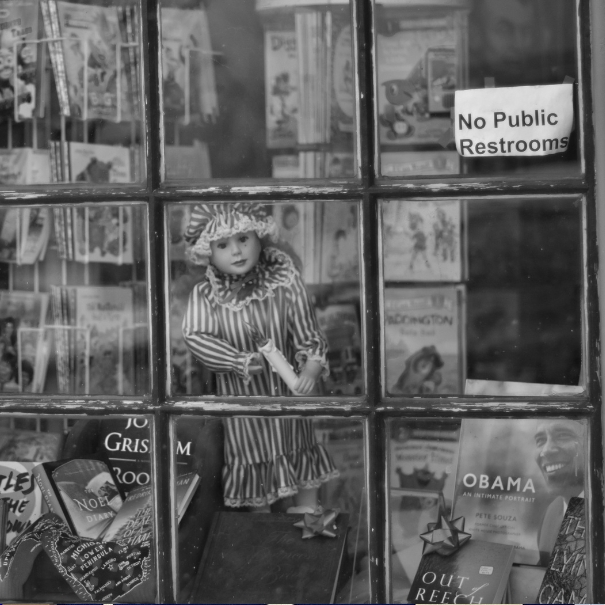One upon a time, when I was still in my twenties, I asked a co-worker whether she still loved her husband of many decades. I remember feeling shocked and dismayed to hear her reply, “well, the devil you know is better than the devil you don’t.” For at that time, a part of me still very much believed in happy endings. You know…the happy endings sold in every fairy tale and romantic comedy. These days I understand marriage was never that simple.
Hellen Phillips’ short story Game—included in her collection Some Possible Solutions—and Monique Roffey’s The White Woman on The Green Bicycle (The White Woman) are both worthwhile explorations of the complexities of marriage.
An Overview
Game contrasts two pictures of marriage/relationships. In one column, a scene unfolds of a young couple at the beach. They spend their time together flirting, desiring each other, copulating. In the other column Phillips lists the banal conversations between the couple (presumably after years of marriage/being together). “Hurry up…The garbage stinks again already…I still can’t hear you” (sound familiar?).
The White Woman, is largely a tale of a European family, the Harwoods. He, George, is British. She, Sabine, is French. The year is 2006 and they have been living in Trinidad for fifty years.
Now in their seventies, much has passed between them. George drinks rum daily and often to dull the pain in his head and, possibly, the guilt he feels for his nonstop philandering. Sabine, at times, strikes her husband in rage, belittles him, and is full of resentment. She resents Trinidad’s heat, the beauty of its women, its corrupt government (though, I’m not sure that isn’t a symptom of most human organizations). Sabine, too, resents the influence of the Caribbean Black culture on her children. However, Sabine resents her husband most for choosing his own desire to stay on the island over her desire to leave.
It’s a Thin Line Between Love and Grief
One of the most profound themes in both works is that of love living alongside grief.
For those who have been in love, you may be familiar with the grief that comes when ordinary life inevitably replaces the excitement of lust and romance. As visually portrayed by Phillips, there are often literally fewer words that pass between the couple. For others, grief comes as hopes and dreams die, as loved ones choose paths of destruction, as strength and beauty fades, and as the ones we love betray us.
For many, the solution has been divorce—Phillips seems to hint at this in her work. Personally, I’m not sure that divorce is the answer, and I know it is no panacea.
Roffey’s own views on divorce, perhaps, go the other way. This would explain why the Harwood’s adult children make comments admiring the couple’s long-lasting love. Long-lasting as it may be, though, both George and Sabine are relying on substances (alcohol and valium, respectively) to get through the day. They certainly love each other, but they struggle to express their love for one another. Thus, longevity alone doesn’t seem to be a viable solution either.
In my search for solutions, I have found self-care works reliably well. For me, self-care means being true to what I believe, facing conflict in a way that respects someone else’s humanity, allowing myself to feel the grief, being present for pain and joy, and hanging on for the miracle.
The White Woman: Other Observations
One: A more subtle theme in The White Woman is the madness of racism and its ability to drive one mad.
Two: I highly recommend listening to the audiobook to get the full effect of the way the book has been written. For example, hearing the women say things like, “eh eh.” Having grown up in a community full of Caribbean people, this made me smile and think back to days gone by.
Parting Thoughts: A Trinidadian Vocabulary Lesson
Thanks to Roffey, I now know the proper verb (at least in Trinidad and Tobago) for sucking one’s teeth is steupse, as in “she steupsed loudly.”



